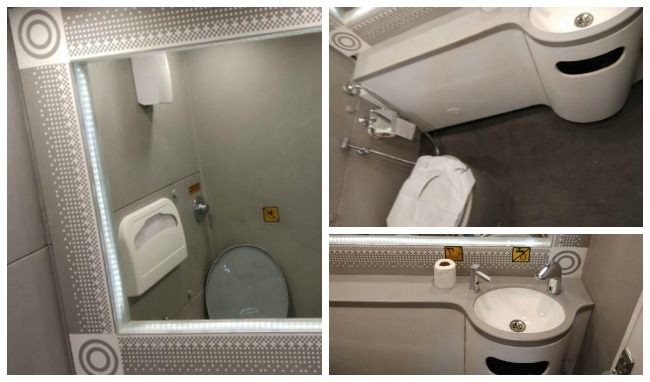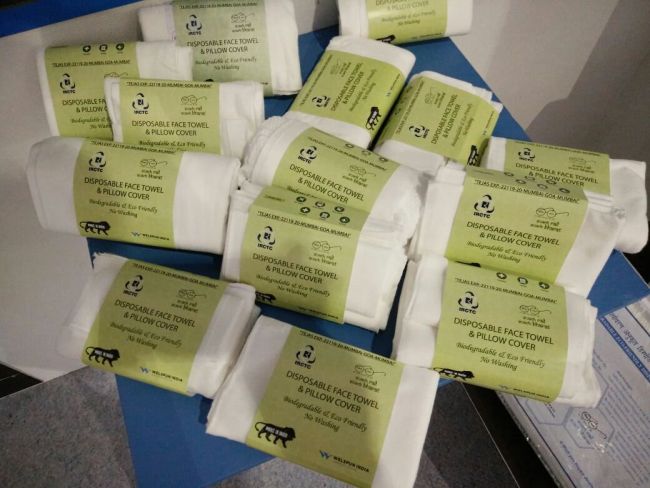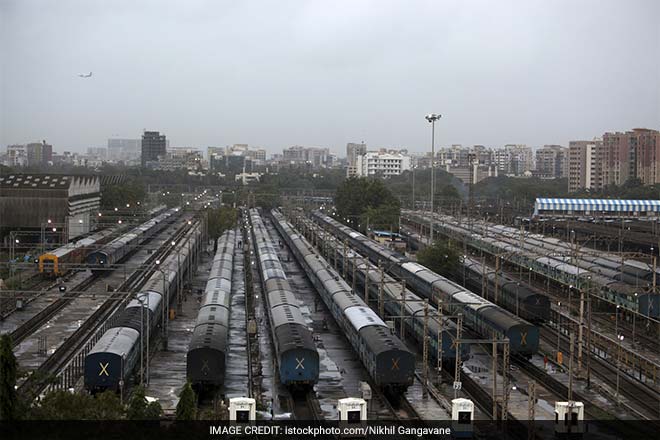New Delhi: It is a story from past when India railways were considered a synonym for open defecation in the country. Since the inception of India’s biggest cleanest drive, the Swachh Bharat Abhiyan in 2014, Indian Railways have worked parallelly in order to fulfill the dream of ‘Clean India’ by 2019.
2017, was one big year for Indian railways as the most extensive network in the country undergone many Swachh changes. From installation of bio-toilets to making green train corridors, revamping existing toilets to improve passenger experience and introduction of a toilet that can flush itself, the Indian railways did it all in order to improve its Swachh rankings.
Here are the 5 projects that highlight how Indian railways made a green difference in the year 2017:
1. Railways Big Push To Bio Toilets: Since 2016, the Indian railways started pushing extensively for bio toilets, a toilet that looks exactly like the traditional toilet, but, instead of the septic tanks, ‘bio-digesters’ are there that can hold up to 8,000 litres of human waste and can convert the waste into carbon dioxide, methane and water.
Railways plan to install approximately 80,000 bio toilets in all the trains by December 2018. This year (2017), taking a step forward, railways decided to install vacuum bio-toilets, like those in aeroplanes – the toilets will be odour-free and will also cut down water usage by over one-twentieth.
The ordinary bio toilet costs Rs 1 lakh each, while the vacuum bio-toilet will cost the railways Rs 2.5 lakh per unit. As a pilot project, along with bio toilets installation, these vacuum bio-toilet toilets will be installed in the AC-I and AC-II coaches of selected trains. According to the official statement, Chennai-based Integral Coach Factory (ICF) will roll out the first 100 coaches fitted with bio-vacuum toilets from January 2018.
2. A Toilet That Can Flush Itself: Apart from bio toilets, another big project for railways was project Swarna, under which 14 Rajdhani trains and 15 Shatabdi trains got upgraded with developments like LED lights, CCTV cameras in doorway and ‘auto janitor’ system in toilets that automatically cleans and deodorizes human waste. The aim of the project is to improve passenger experience with better comfort, hygiene and value-added features. According to an official statement, an expenditure of Rs. 35 lakhs has gone into this which breaks it down to Rs. 2 lakh per coach.
3. Premium Looking Toilets In All Air Conditioned and Non-AC Coaches: In a bid to improve passenger experience, Indian railways also launched a renovation project under which all the existing toilets in most trains are being given a premium makeover, with swanky fittings and other amenities. This is an add on feature to the existing plan of fitting each and every coach with bio-toilets.
The premium looking new washrooms apart from having western-style bio-toilet seats (A seat that converts human excreta into water and gas) will have a modular wash basin as opposed to the stainless steel one that exists now and are being stylised mainly in white. And to make sure the toilets are odour free, these new toilets also have an automatic fragrance dispenser and soap dispenser. Adding more, the new toilets have urinals and nappy-changing counters.
4. Disposable Eco-friendly Towels, Pillow-Covers In Rajdhani Express: After a big push for toilets, the Indian railways taking a step ahead for the first time have introduced disposable, eco-friendly hand towels and pillow covers which are made from biodegradable cotton in a bid to manage their humongous amount of waste in a green way. In fact, the process of manufacturing these green products is also environment-friendly – the products are 100 per cent chemical and dye-free.
For now this is being adopted on a trial basis on the recently introduced Rajdhani between Bandra Terminus and Hazrat Nizamuddin of Western Railways, but, the plan is to introduce eco-friendly products in all the trains soon.
5. Waste Free Railway Lines Via Green Train Corridors: To ensure zero toilet discharge on rail tracks, railways since 2016 is aiming to introduce more ‘Green Corridors’. As of date, in India there are 6 green corridors that have been fitted with bio-toilets and ensure zero discharge of human waste on the rail tracks thereby improving cleanliness and hygiene. What’s more, the 5 green corridors – Rameswaram-Manamadurai (Southern Railway, 114 km route length), Okha – Kanalus (Western Railway, 141 km route length), Porbandar –Wansjaliya (Western Railway, 34 km route length), Jammu Tawi – Shri Mata Vaishno Devi Katra, (Northern Railway, 78 km route length) to name a few are also committed to keep their tracks and stations clean on regular basis under the ‘Swachh Rail-Swachh Bharat’ initiative.
22 more green corridors are planned for 2017 -2018.
In addition to all these projects the railways have also launched a comprehensive plan in order to fulfill its Swachh targets. The Indian railways are now also asking for commuter feedback on cleanliness in the trains. Apart from this, they have also launched the SMS-based service called – Clean My Coach Service, where a passenger can request for a dirty coach to be swept and cleaned by sending just an SMS.































